Nội Dung Chính
- 1 SPEAKING Work in pairs. Read the task. Are you good at sharing a living space with other people? Why?/Why not? What problems can there be?
- 2 Read the Speaking Strategy above. Add the question tags. Then read the Pronunciation box and practise saying the tags.
- 3 Listen to a student doing the task in exercise 1. Answer the questions.
- 4 KEY PHRASES Work in pairs. Complete the phrases from the dialogue with the words below. Listen again and check.
- 5 SPEAKING Work in pairs. Introduce each topic using the phrases from exercise 4 and discuss diplomatically.
- 6 Listen to another student doing the task in exercise 1 and answer the questions in exercise 3. In which dialogue is there less agreement, the first or the second?
- 7 SPEAKING Work in pairs. Taking it in turns to be the difficult flatmate. Follow the advice in the Speaking Strategy. Try to be diplomatic and resolve the issues.
(Page 32)
I can use diplomatic language in a discussion.
|
1 SPEAKING Work in pairs. Read the task. Are you good at sharing a living space with other people? Why?/Why not? What problems can there be?While studying in Britain, you are sharing a flat with another student. You are having problems with your flatmate because he/she sometimes leaves the flat untidy and dirty. Talk with your flatmate and agree on some rules for a cleaning rota.
2 Read the Speaking Strategy above. Add the question tags. Then read the Pronunciation box and practise saying the tags.1 The flat's great, .................................... ? 2 You don't really like cleaning, .................................... ? 3 You leave a lot of clothes on the floor, .................................... ? 4 The cooker can get quite dirty, .................................... ? 5 I'm probably more organised than you, ....................................
|
3 Listen to a student doing the task in exercise 1. Answer the questions.1 Which specific problems are mentioned? 2 Do the speakers react appropriately to each other? 3 What is the outcome of the conversation? 4 KEY PHRASES Work in pairs. Complete the phrases from the dialogue with the words below. Listen again and check.bring feel just mind on perhaps should word Being diplomatic 1 Can I have a ......................... with you about...? 2 Well, it's ......................... that... 3 What did you have in ......................... ...? 4 I thought ......................... we could... 5 You must ......................... that... 6 I didn't want to ......................... it up, but... 7 You ......................... have said something earlier. 8 Could we possibly agree ......................... ...? 5 SPEAKING Work in pairs. Introduce each topic using the phrases from exercise 4 and discuss diplomatically.1 Cleaning the bath and toilet 2 Taking out the rubbish 3 Borrowing things without asking 4 Playing music
6 Listen to another student doing the task in exercise 1 and answer the questions in exercise 3. In which dialogue is there less agreement, the first or the second?7 SPEAKING Work in pairs. Taking it in turns to be the difficult flatmate. Follow the advice in the Speaking Strategy. Try to be diplomatic and resolve the issues.While studying in Britain, you are sharing a flat with another student. You are having problems with your flatmate because he/she has a lot of visitors and makes quite a lot of noise. Talk with your flatmate and agree on some rules for visitors and noise levels. |



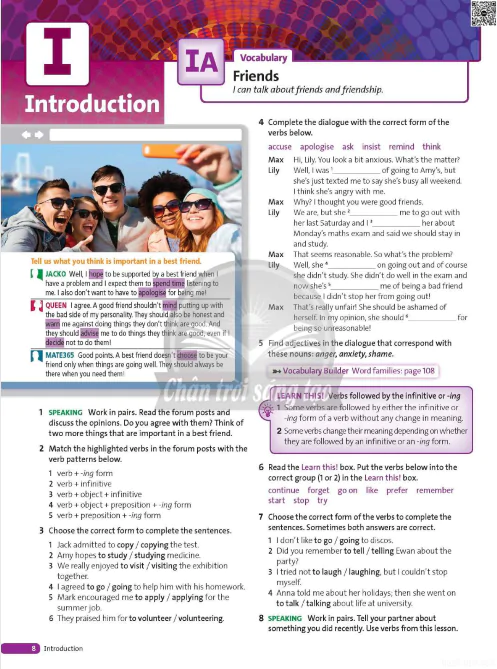
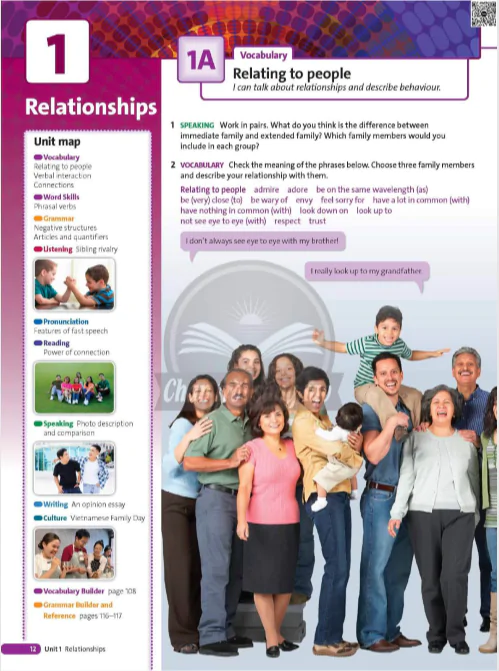
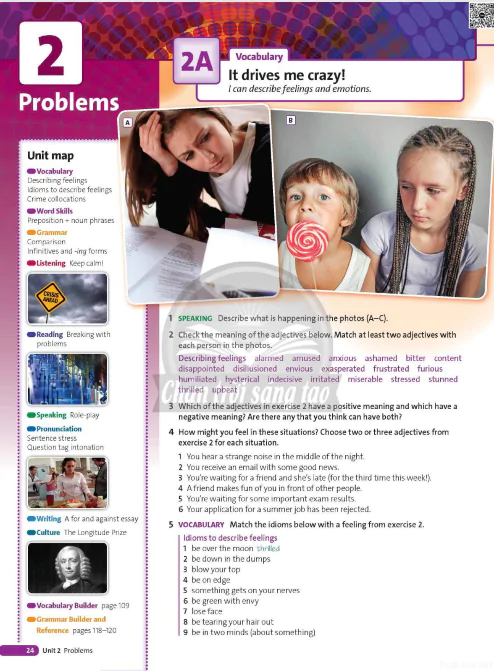
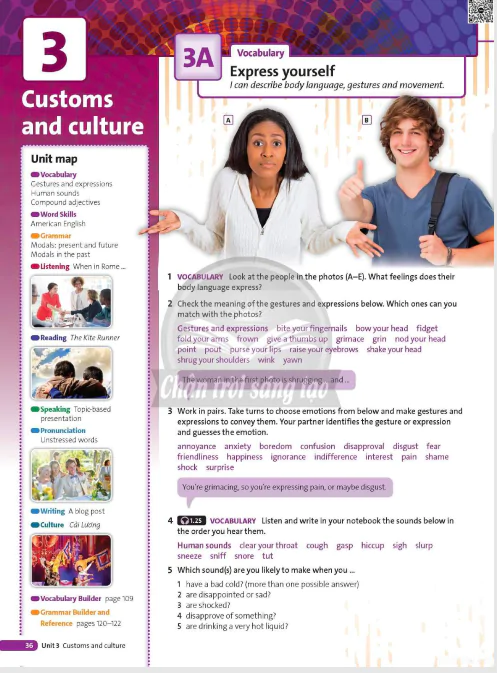
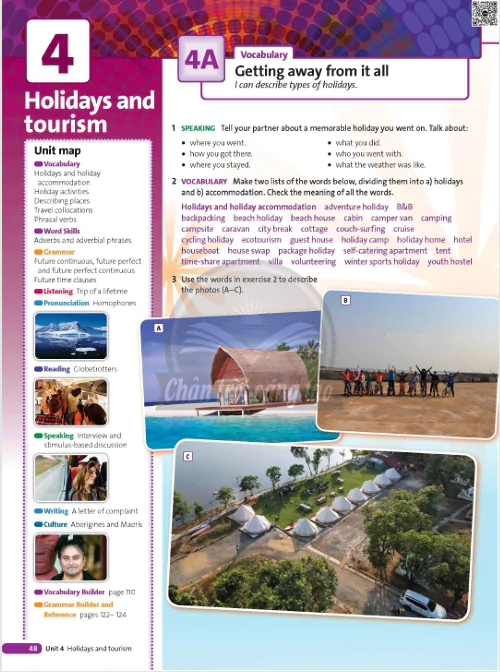
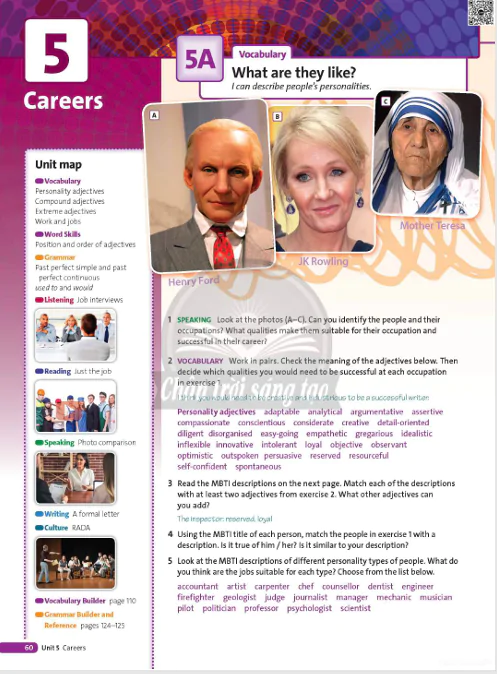


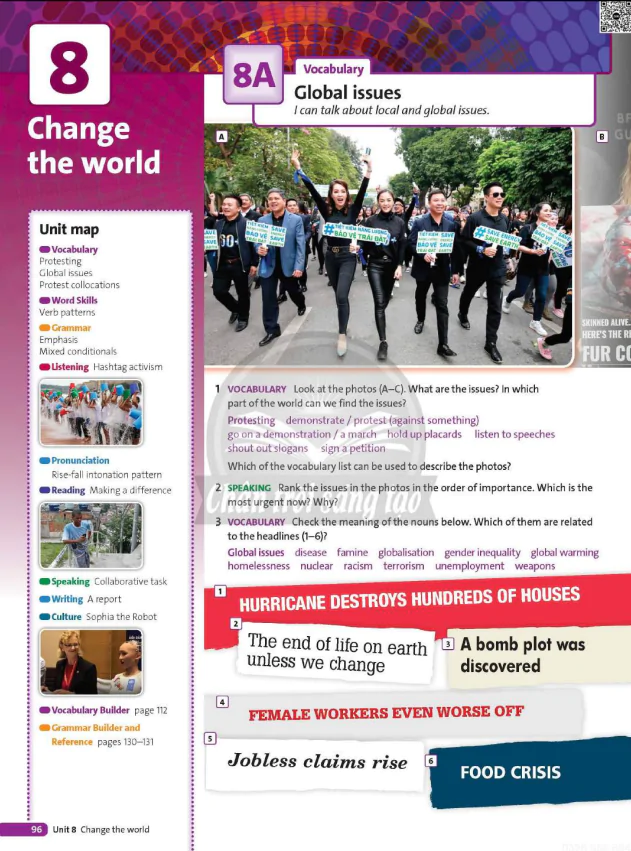
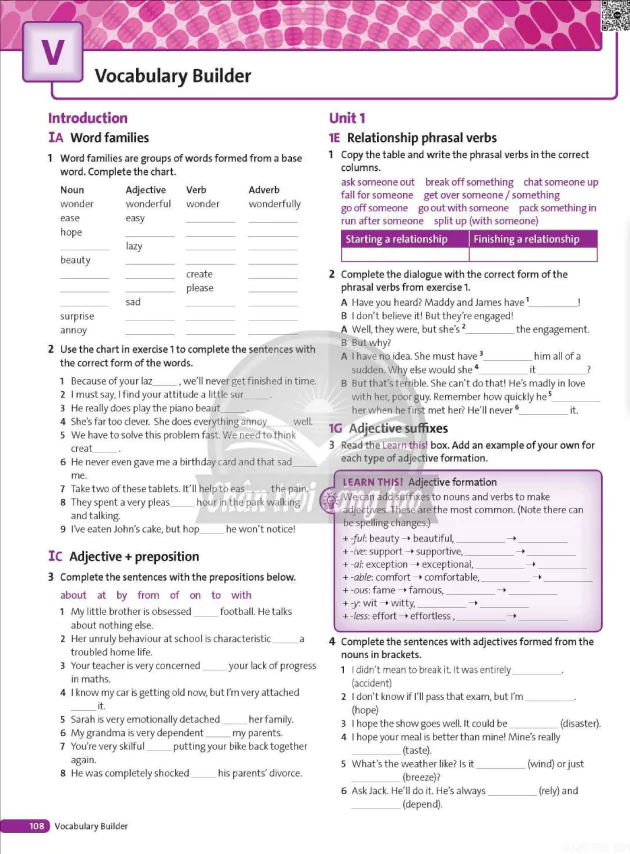
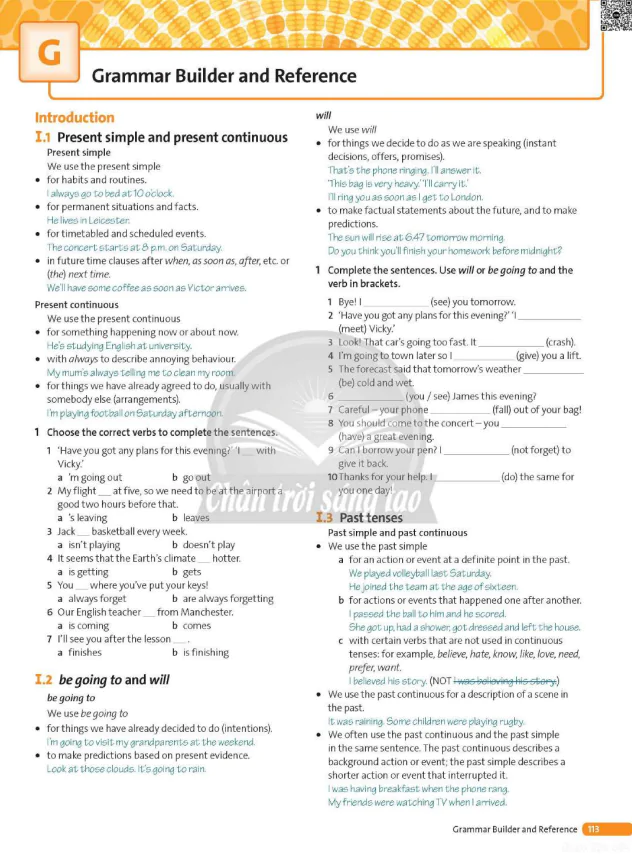


































Bình Luận
Để Lại Bình Luận Của Bạn